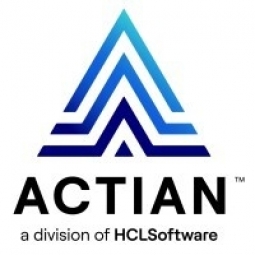Download PDF
Actian Open Source Database Gives Germany an Unshakeable Foundation for Monitoring Earthquakes and the Comprehensive Nuclear-Test-Ban Treaty
Technology Category
- Application Infrastructure & Middleware - Database Management & Storage
Services
- Data Science Services
The Challenge
The Federal Institute for Geosciences and Natural Resources (BGR) in Germany was tasked with monitoring seismometer and infrasound stations in support of the Comprehensive Nuclear-Test-ban Treaty (CTbT). The CTbT, signed in 1996, prohibits all forms of nuclear testing in any environment, whether it’s underground, underwater, or in the atmosphere. The international monitoring system monitors compliance with the treaty, and comprises a global network of monitoring stations. One of BGR’s primary tasks includes monitoring seismometer and infrasound stations in support of the CTbT. In addition to monitoring the CTbT, the second key task of the BGR research group is the monitoring of earthquakes. Even today, it is still almost impossible to forecast when and where an earthquake might occur. Germany has seismically active regions that are repeatedly subject to earthquakes. Due to the high population and industrial density, continuous monitoring of seismic activity is essential. Only by careful monitoring is it possible to identify long term trends and make forecasts on future earthquakes and the accompanying seismic hazard. Both current and historical data on earthquakes form the basis for many scientific investigations.
About The Customer
The Federal Institute for Geosciences and Natural Resources (BGR) is an agency of Germany’s Federal ministry of Economics and Technology (bmWi). Based in Hannover, BGR is the geoscientific center of excellence within Germany’s federal government and is part of the government’s scientific and technical infrastructure. The institute gives neutral and independent advice and information to ministries, authorities, and businesses on geoscientific and natural resource issues. With a view to stimulating Germany’s economic development, BGR provides recommendations on the exploration of georesources and natural resources, and their sustainable use under protection of the environment and the climate. BGR was assigned by the German federal government to act as the national data center for the CTbT organization in Vienna.
The Solution
BGR has relied on Ingres for more than two decades. Beginning with Ingres® Database Enterprise, BGR has reaped the benefits of working with the Ingres database – in particular, leveraging the database’s stability, user-friendliness, and high-storage capacity. More recently, BGR has adopted the open source business model that Ingres has developed. Markus Dohmann, BGR geophysicist, says, “We opted for an Ingres database and after more than two decades, which have seen countless migrations and restructuring measures, I can only say: the Ingres database has never let us down! The Ingres database is extremely robust and is a major contributory factor towards the fact that we always exceed the required 98% data availability.”
Operational Impact
Quantitative Benefit





